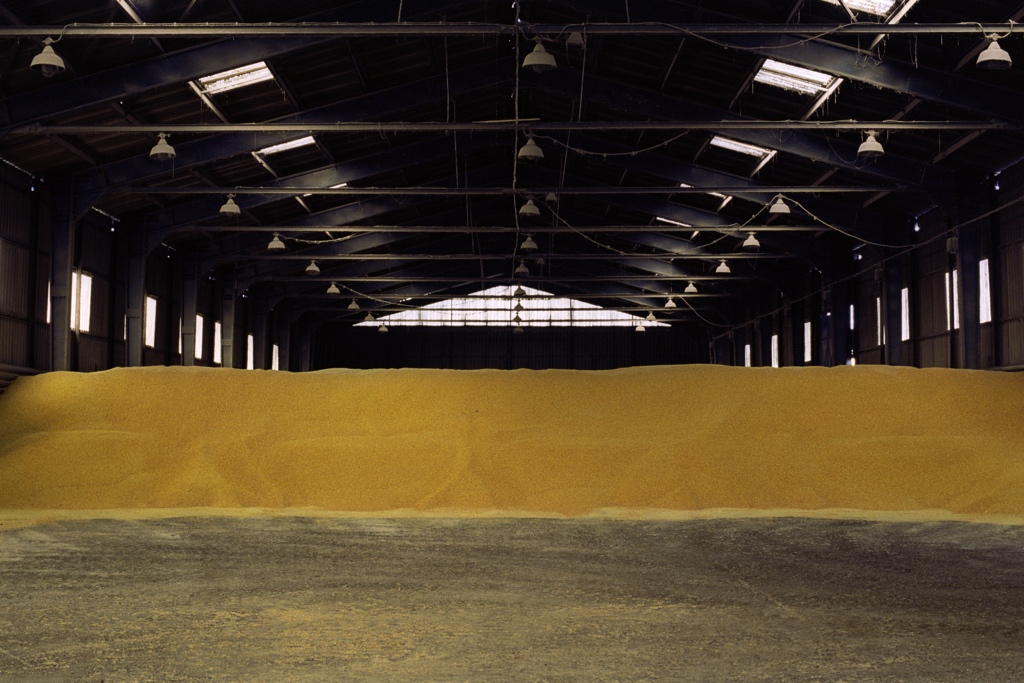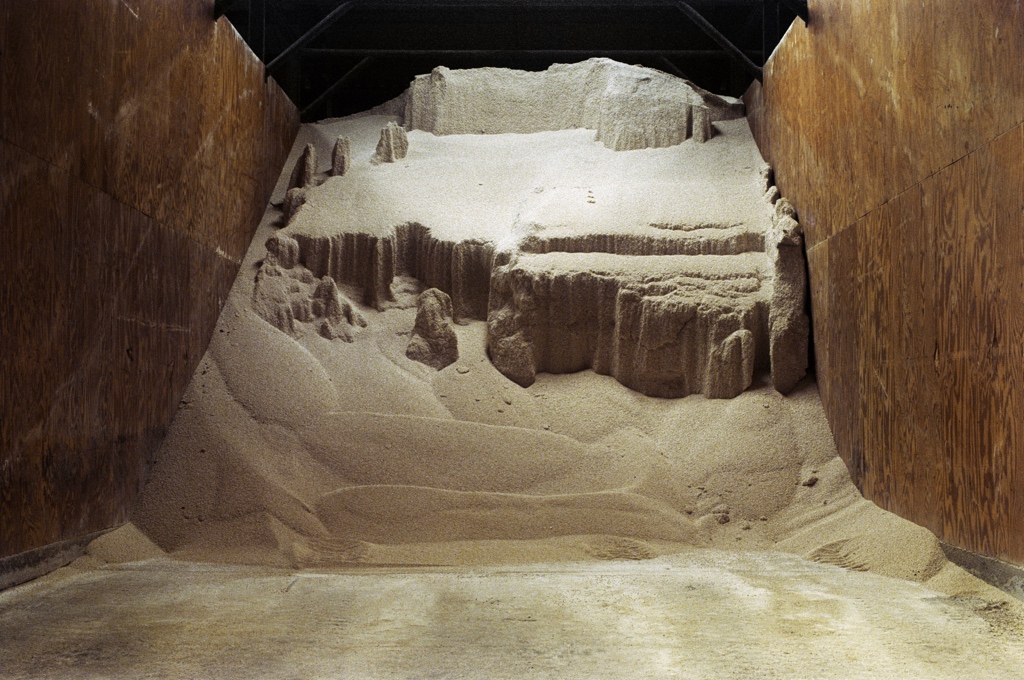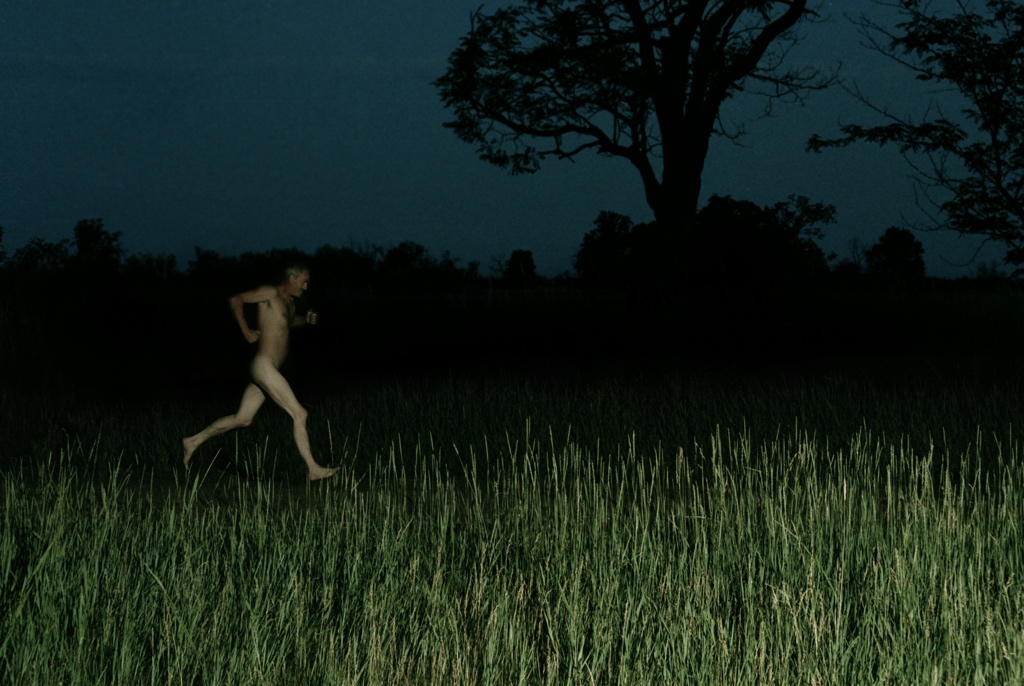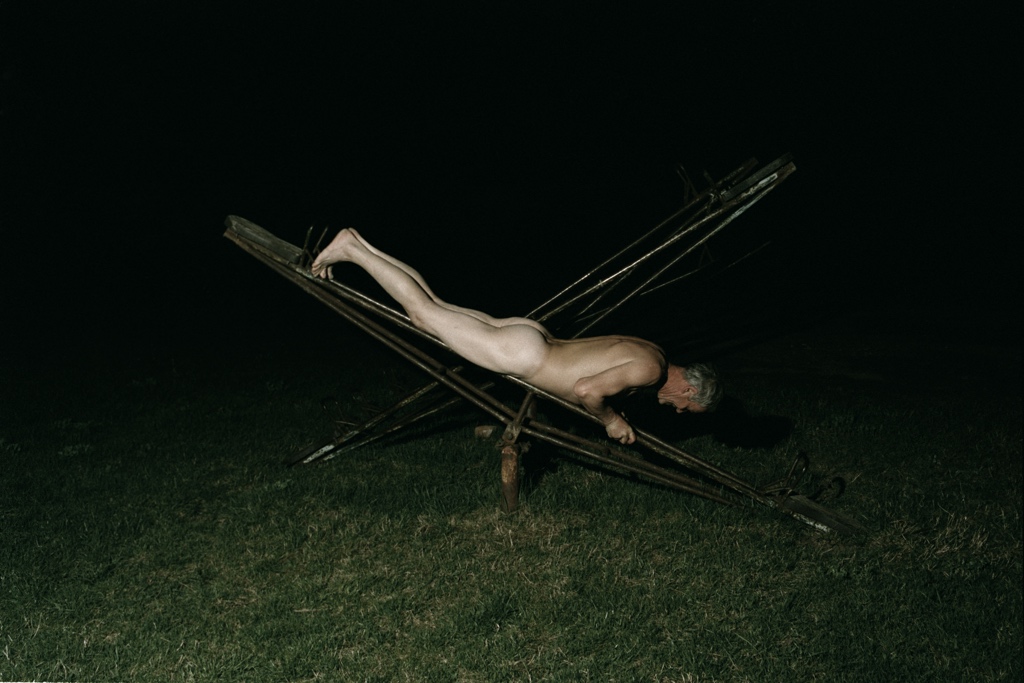For her diploma work, Village Torso, defended at MOME in 2009, Katalin Kovács took pictures of naked middle-aged or older people, sharply lit at night in a countryside environment. Although the project mainly builds on the tension between documentary and fictional photography, the essence of the series truly appears in its description: the models are the parents and grandparents of the photographer and in order to realize the series she had to convince them, help them overcome their shyness, and tear down the moral barriers of their countryside environment. For this reason, the viewer is never sure about the degree of reality in the scenes, as a surrealistic, magical ambivalence between hiding and appearing is woven throughout the entire series. The ambivalence also manifests in the photographer’s position, as both the director and the observer, estranging herself from her parents and at the same time brushing an intimate portrait of her own identity. In her series, Human dignity (2012), Kovács explores another aspect of ambivalence. The photos show interiors of warehouses where raw building or alimentary materials such as sand, cement, flour or cereals appear piled up in layered mounds, with no human presence and no machines or tools visible. The mounds, forming and drawing landscapes that seem to have evolved naturally as the materials move, are in fact the results of man’s hand and monuments to anonymous workers.

Untitled, from the series Village Torso, 2009

Untitled, from the series Village Torso, 2009

Untitled, from the series Human Dignity, 2012

Untitled, from the series Human Dignity, 2012